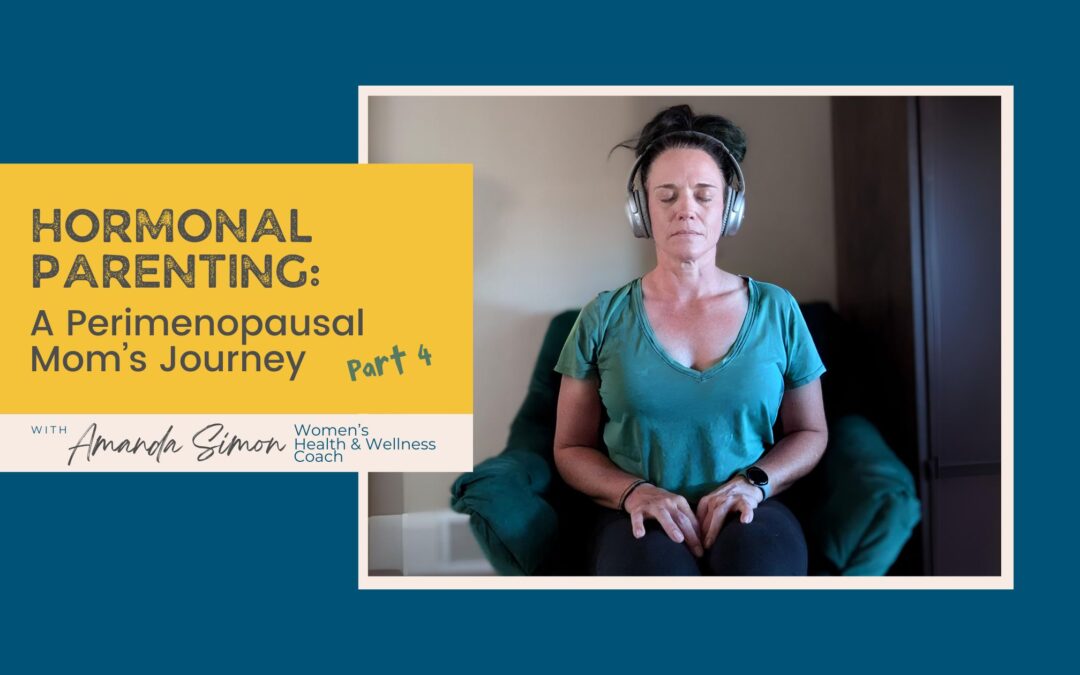Screens, Stress and the Search for Balance
Last week, I briefly mentioned my kids’ inability to get off screens, and I wanted to explore that a bit more today. Does anyone else feel like their kids haven’t stepped outside since COVID? ????♀️ The constant screen time has added a whole new layer of stress, and it’s not just affecting my kids—it’s impacting my own stress levels, especially during perimenopause. That’s why I’ve been focusing more on mindfulness for perimenopause and stress management, trying to find a better balance for both myself and my family.
Living in Los Angeles during lockdowns, we didn’t have easy access to outdoor spaces. Going outside was a whole ordeal because we lived in a crowded area. Being outdoors meant being around people, which wasn’t considered safe, especially in LA.
So, we stayed inside. Just the four of us. For 518 days. Have I mentioned that yet?
The first time we ventured out was to see the glowing ocean as bioluminescent plankton lit up the water—one of those rare moments we considered it worth the risk. But even then, people were getting busted for being out in public.
Meanwhile, I was deep into my Master’s program, and Jon was working from home. Jon, who isn’t exactly a multitasker, focused completely on his work. I was left juggling my studies and “taking care of the kids.” Spoiler alert: they were pretty much ignored.
Enter Ipa D: The Screen Problem
We fell into a routine where we started relying on the cheapest (but most expensive in other ways) nanny ever: Ipa D. Otherwise known as the iPad. ????
Screens became a constant in our home—so much so that, now, my boys don’t really know what to do with themselves unless a screen is involved. Even my youngest won’t eat unless the TV is on.
Writing this down really hammers home how far we’ve let things go.
And here’s the kicker: My oldest, D, is now homeschooling. And guess what? It’s all online. More screens. Every day. ????
And here’s the kicker: My oldest, D, is now homeschooling. And guess what? It’s all online. More screens. Every day. ???? But the bright side? He’s learning more than ever and is actually excited about school for the first time.
Time for Change… But What?
Here’s the thing—I know the screen time overload isn’t good for them (or me). I know something has to change, but I’m still figuring out what.
I also got caught in the classic “compare our family to others” game and really started to beat myself up. But then I realized:
- Our family is not like other families.
- Our kids are not like other kids.
- Our solutions may not look the same as everyone else’s.
Going cold turkey on screen time feels like setting us up for chaos. So, I need to find a more gradual, sustainable approach.
This brings me to something I’ve been focusing on lately: mindfulness.
Stress, Screens, and My Journey into Mindfulness
If you’ve been following along or you’ve worked with me before, you know I focus on three pillars: nutrition, movement, and stress management. I’ve got nutrition and movement pretty much dialed in—I meal prep like a boss and stay active regularly.
But stress management? That’s been harder to crack. Specifically, mindfulness.
I know “mindfulness” can sound a little woo-woo to some people, so let’s clear that up. Mindfulness, at its core, is simply the practice of being present in the moment. It means paying attention to what’s happening right now without judgment.
It’s about awareness. And you don’t have to sit cross-legged on a mountaintop chanting “Om” to get it. ????
How Mindfulness Helps with Perimenopause
So why does this matter for women going through perimenopause?
Mindfulness can be a game-changer for managing perimenopausal symptoms. Stress is a major factor that can make things like hot flashes, mood swings, and sleep disturbances worse.
Here’s how mindfulness can help:
- Emotional regulation: Mindfulness helps you process emotions more calmly.
- Reducing the intensity of hot flashes: Studies have shown mindfulness can lessen their severity.
- Better sleep: Mindfulness promotes relaxation, which can help you get better rest.
- Coping with mood swings: Being mindful can help you ride the emotional rollercoaster with more grace.
For me, mindfulness comes closest when I’m on the golf course. After reading Zen Golf, I started incorporating deep breathing and grounding techniques. It’s improved my game so much that I’ve won over $400 in tournament play and leagues this year! ????️♀️
But I want to take it further than just my golf game. I want mindfulness to become a daily practice—not something I stumble into when I’m focused on a putt.
My 4-Week Mindfulness Challenge
So, here’s what I’m doing: I’m committing to a 4-week mindfulness practice—at least 10 minutes a day.
It’s Day 2 so far (yay me!), and I’ll check in with updates. My hope is that this will help manage my own stress and model healthier habits for my boys. Maybe it will even reduce their screen time. Who knows?
I’m excited to see how this mindfulness journey brings some balance to our lives.
Want to Join Me?
If you’re dealing with your own screen overload, stress, or just trying to keep it all together as a parent, why not join me?
Let’s give this mindfulness thing a real shot and see what 4 weeks of focusing on our mental and emotional well-being can do. I’ll keep sharing my progress, so stay tuned!

